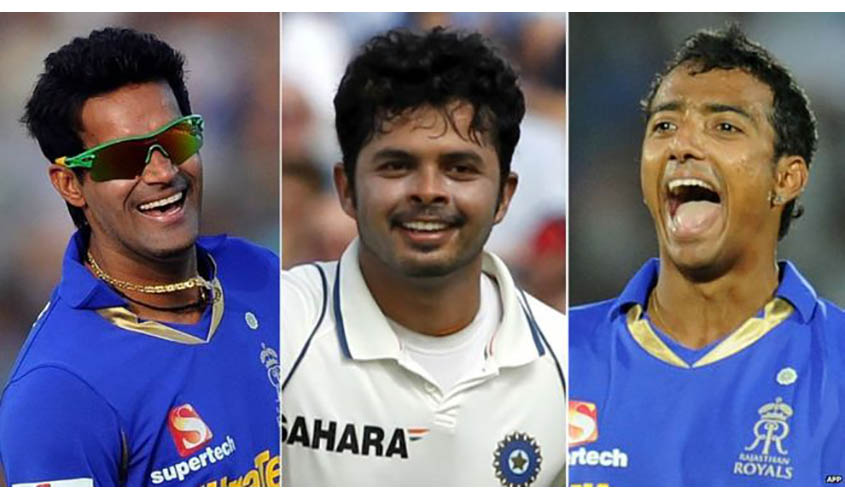‘There is a need to have a designated law to prevent such crimes.’
Police officers and lawyers have claimed that the lack of any specific law to prosecute persons involved in spot fixing and betting in the world of cricket, has led to a low rate of conviction in such cases which have witnessed a rise in recent years.
A senior Delhi Police officer, who has investigated multiple cases of fixing and betting, told The Sunday Guardian: “In most of the cases of betting and spot fixing in cricket, the conviction rate is very low because we have to rely on laws from the Indian Penal Code (IPC) like cheating, conspiracy, forgery to prosecute persons involved in these cases, which makes the case weak; therefore, the case does not stand its merit in court.”
The officer further said that as the number of betting cases has been increasing, there is an urgent need to have a designated law to prevent such kind of crimes or else this trend would keep increasing.
Recently, during the last season of the Indian Premier League (IPL), a betting scandal was unearthed by the Mumbai police and saw the alleged involvement of several celebrities. Even bookies from Kolkata and elsewhere, who were involved in betting and spot fixing of matches, were also caught during raids at several places.
The infamous IPL scandal had shocked the entire nation in 2013 with the Rajasthan Royals allegedly involved in spot fixing of matches and players like Sreesanth were booked by the Delhi Police for alleged fixing of matches. However, the trail court had let Sreesanth off after the Delhi Police failed to provide concrete evidence in this case.
Neeraj Kumar, former Police Commissioner of Delhi Police, who was heading the police force during the time of investigation into the spot fixing allegations against Rajasthan Royals, told The Sunday Guardian, “The lack of any law present in this case had weakened our case. In this case, we even tried to invoke MCOCA (Maharashtra Control of Organised Crime Act) which involves organised crime apart from cases of cheating and fraud, yet the judge did not seem to be convinced and had relieved all the accused due to absence of any law that deals with betting.”
Vikas Upadhaya, a lawyer practising in Supreme Court, said that unless there is a specific law to prosecute offenders involved in crimes like betting and spot fixing, these crime cannot be controlled. “In such cases, the police tries to borrow laws from the IPC or other such criminal laws passed by different states. The police also invokes cases of cheating, fraud and conspiracy. But when it comes to proving such sections in court, it becomes difficult because in such cases, it is problematic to prove who actually the individual involved in betting has cheated,” he said.
“The Gambling Act is also a very toothless Act which calls for a minimum punishment of one month and a maximum punishment of six months with a fine of just Rs 200. Moreover, this Act is unclear about betting and spot fixing since it talks about assembly in a common place, but betting these days happens over the internet and telephone; so the very definition negates it being applied for modern day betting,” Upadhaya added.
Spot-fixing refers to illegal activity in a sport in which a specific aspect of a game, unrelated to the final result but upon which a betting market exists, is fixed in an attempt to ensure a certain result in a proposition bet. Examples include something as minor as timing a no ball or wide delivery in cricket. Betting, on the other hand, is the action of gambling money on the outcome of a game. The report of the Supreme Court appointed R.M. Lodha panel distinguished between the two, stating that: “There is a fundamental difference between betting and match or spot-fixing. The latter interferes with the integrity of the game and attempts to change the course of the match. On the other hand, betting is a general malaise indulged by different sections of society.”
Speaking to this newspaper, former cricketer and member of Parliament Kirti Azad told this correspondent, “I had always been vocal about invoking a serious law to curb the menace of fixing and betting in cricket. I am of the view that players involved in match fixing and betting in international matches should be charged with treason. At present, we do not have any law to deal with these cases of treachery. The laws are old and redundant whereas we have seen such new technological advancements. We should change the law or perhaps brings new laws according to the changing scenario.”
“Why does the BCCI (Board of Control for Cricket in India) not ban players involved in such cases for life? What does the anti-corruption wing of BCCI do? Why doesn’t the BCCI hand over the case to the police as soon as they come to know of any such case?” questioned Azad.
Siddharth Srivastava, who is a partner with Link legal, a well-known law firm, said, “At present, India has no explicit laws prohibiting the said illegal and corrupt activities. In view of the legislative lacunae, persons are tried under Section 415 of the IPC which involves dishonesty or using fraudulent means, Section 409 meaning criminal breach of trust by public servant, or by banker, merchant or agent, Section 420 meaning cheating and dishonestly inducing delivery of property, and Section 120B involving punishment for criminal conspiracy. It is generally very difficult to get a conviction in cases of spot fixing and betting, since proving conspiracy, cheating, and criminal breach of trust by a public servant/agent in the case of players might prove to be too high a threshold to meet. Even if any case is proved, the tenure of punishment is very low.”

